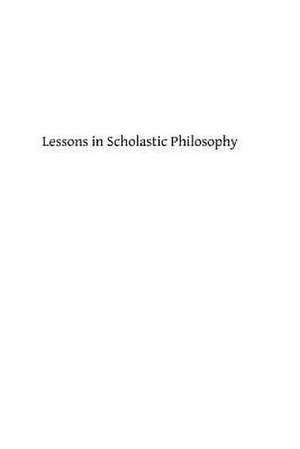Lessons in Scholastic Philosophy
Autor Michael Shallo Sj, Brother Hermenegild Tosfen Limba Engleză Paperback
Preț: 136.91 lei
Nou
Puncte Express: 205
Preț estimativ în valută:
26.20€ • 28.01$ • 21.84£
26.20€ • 28.01$ • 21.84£
Carte disponibilă
Livrare economică 28 martie-11 aprilie
Preluare comenzi: 021 569.72.76
Specificații
ISBN-13: 9781484808672
ISBN-10: 1484808673
Pagini: 404
Dimensiuni: 152 x 229 x 21 mm
Greutate: 0.54 kg
Editura: CREATESPACE
ISBN-10: 1484808673
Pagini: 404
Dimensiuni: 152 x 229 x 21 mm
Greutate: 0.54 kg
Editura: CREATESPACE
